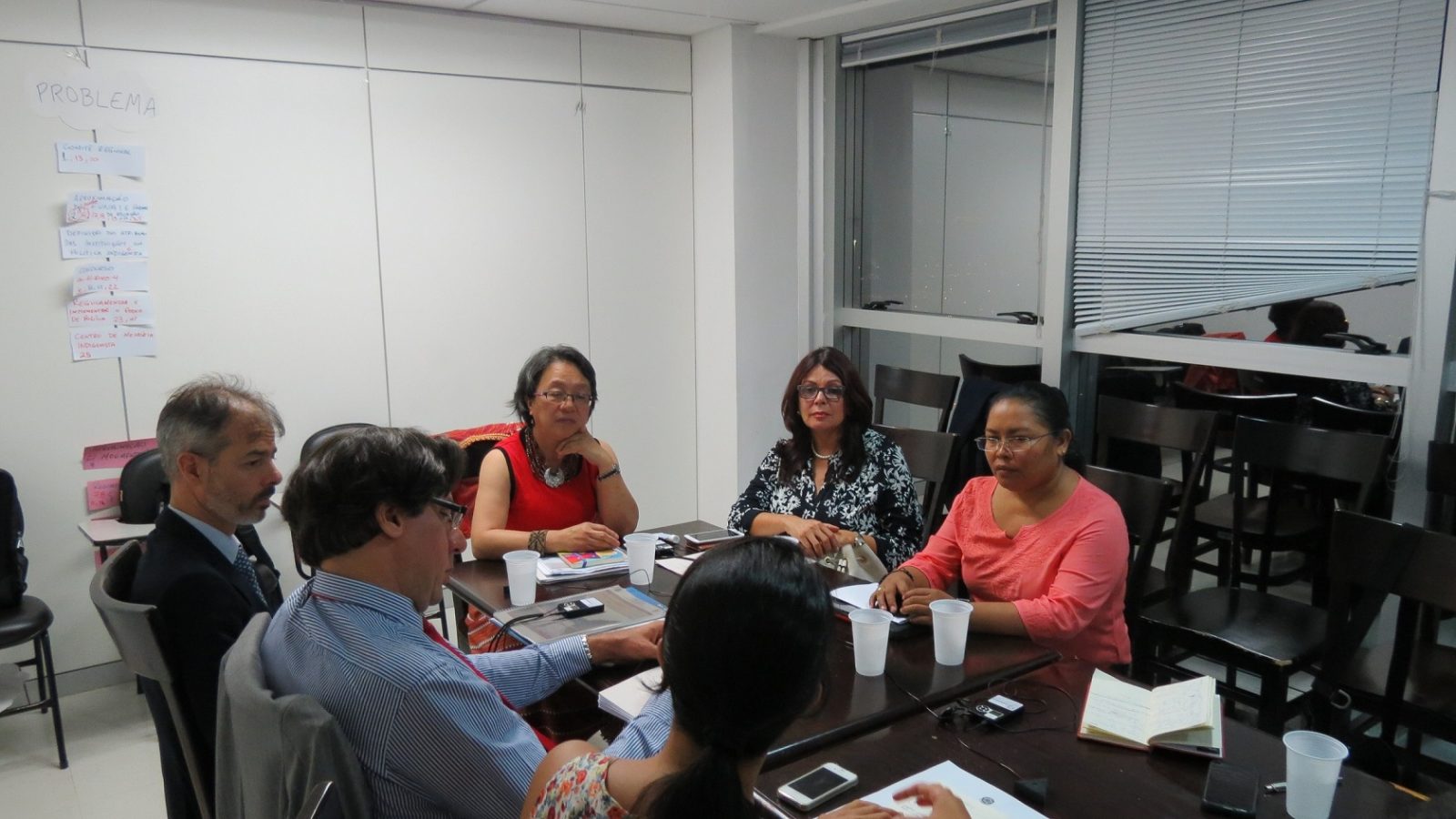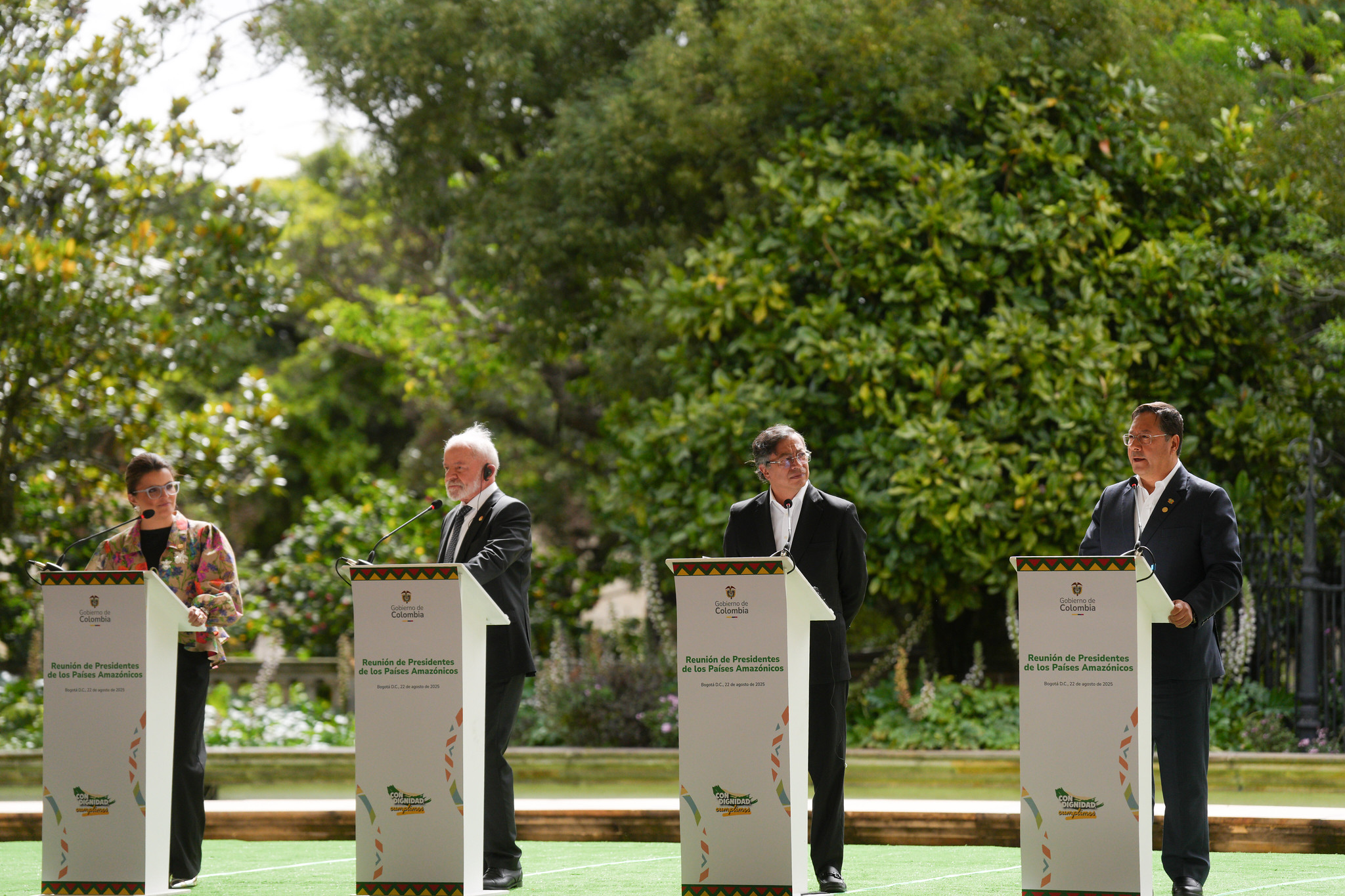Brasilia, March 17, 2016.- The Special Reporter of the United Nations (UN) on the Rights of Indigenous Peoples, Victoria Tauli-Corpuz, met yesterday (March 16) the Secretary-General of the Amazon Cooperation Treaty Organization (ACTO), Jacqueline Mendoza and the Director of Territorial Protection of the National Foundation for the Indian of Brazil (FUNAI), Walter Coutinho Jr. to know about ACTO’s work in the field of indigenous peoples in the Amazon region.
Representatives of the Coordination of Indigenous Affairs of ACTO, the representative of the Ministry of Foreign Affairs of Brazil (MRE), Marcos Tulio Cabral and technical teams of the mentioned Institutions also attended the Meeting.
The activities developed by ACTO in defense of the rights of indigenous people in isolation and in initial contact were discussed, among the main topics. In that sense, the Program Strategic Framework for the Development of a Regional Agenda for Protection of Indigenous Peoples in Isolation and Initial Contact (IPI&IC), and the Project Indigenous People in Border Regions of ACTO, financed by the IDB development Bank were presented.
During the meeting, Tauli-Corpuz was informed about the direct and indirect impacts of the IPI&IC Program in Member Countries as well as the achievements as recommendations for the health care of these peoples.
Similarly, they explained the importance of the technical exchanges conducted during field missions in Bolivia, Brazil, Colombia, Ecuador and Peru contributing to the creation of specific policies to protect indigenous peoples in isolation and initial contact, as well as the creation and strengthening of specialized sectors in the structures of the Member Countries for a more efficient action in the protection of these peoples and groups.
Moreover, among the topics discussed were the impacts of governmental projects activities undertaken close to the territories of isolated indigenous peoples, in addition to the different types of inter-tribal conflicts in the regions inhabited by indigenous peoples with different degrees of contact with the national society of Amazonian countries and uncontacted.
The beginning of the second phase of the program Indigenous Peoples in Border Regions, with a focus on traditional knowledge in land management and epidemiological control of these towns, was also informed.
Tauli-Corpuz acknowledged the important role of ACTO as regional cooperation organism in this whole theme and the issues surrounding indigenous peoples in isolation and initial contact.
Source: ACTO


